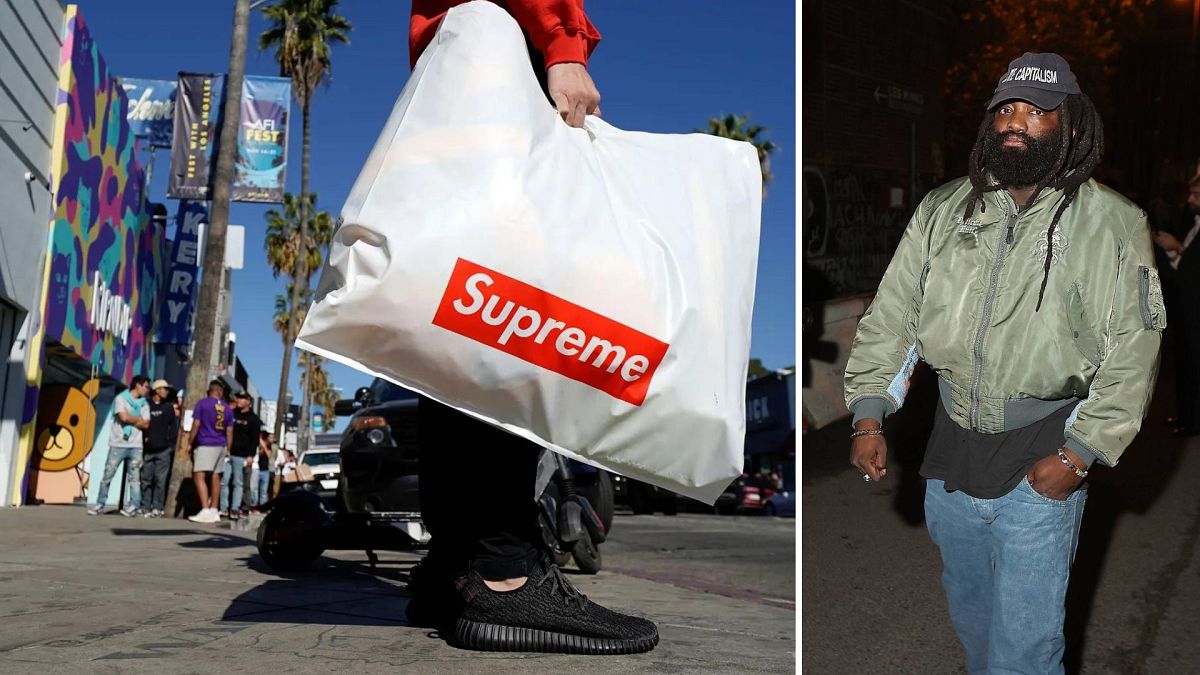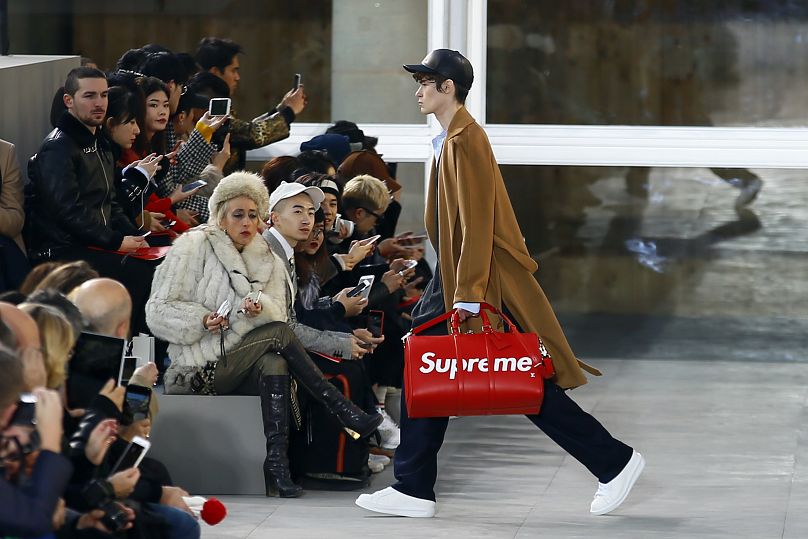The designer who became Supreme's first ever creative director in February 2022 has now resigned, accusing the company of “systemic racism”.
Tremaine Emory, the American designer who founded Denim Tears, has stepped down from his role as creative director at streetwear giant Supreme, citing allegations of "systematic racial issues" within the company.
His resignation follows the cancellation of a long-awaited collaboration with major Black American artist Arthur Jafa.
Emory took on the position at the cult New York skate brand in February 2022, succeeding its founder, James Jebbia.
Prior to his tenure, Emory had already made a significant mark in the streetwear community, having founded his own label, Denim Tears, in 2019 and had collaborated with the late Virgil Abloh and Kanye West.
What is Supreme?
Supreme, an iconic American clothing and skateboarding lifestyle brand, was established in New York City in April 1994, instantly recognisable by its iconic red logo.
It has achieved unparalleled popularity and status through collaborations with renowned brands like Louis Vuitton, The North Face, Nike, and Vans.
With a diverse fanbase across the world, Supreme has achieved a cult following, resulting in consistently long queues outside their global boutiques.
From their hoodies, sweatshirts and accessories, the brand appeals not only to streetwear enthusiasts but also to the skateboarding and hip-hop communities.
Supreme's product releases are typically limited in quantity but reasonably priced, prompting many to camp out at its stores when new drops are announced. The resale value of Supreme products often soars to double or triple their retail price.
What are Emory's claims?
In his resignation letter, obtained by Business of Fashion, Emory expresses frustration over the lack of transparency regarding the decision to drop the project with Arthur Jafa, attributing it to the management's "inability to communicate" or offer "full visibility".
“This caused me a great amount of distress as well as the belief that systematic racism was at play within the structure of Supreme," states Emory in his resignation letter.
Emory also took to social media to share screenshots of a text conversation with Jebbia, following a meeting about the scrapped Jafa collaboration.
According to Emory, the project's imagery involved "depictions of Black men being hung and the freed slave Gordon pictured with his whip lashes on his back," which deeply troubled a Black studio employee who then quit.
Emory also recounted being labeled as "racially charged" and "emotional" for raising concerns about systemic racism during a meeting, all while the Jafa project was secretly discontinued without his input.
Supreme have responded to Emory's claims in a statement shared to BoF, “While we take these concerns seriously, we strongly disagree with Tremaine’s characterisation of our company and the handling of the Arthur Jafa project, which has not been cancelled. This was the first time in 30 years where the company brought in a creative director. We are disappointed it did not work out with Tremaine and wish him the best of luck going forward.”




